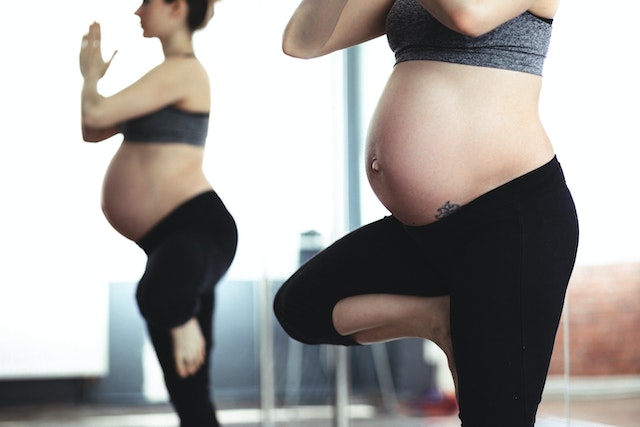Introduction:
Pregnancy is a precious time when a woman nurtures and prepares for the arrival of her baby.
Taking care of oneself during pregnancy is vital to ensure the well-being of both the mother and the developing baby.
In this article, we will explore important factors that pregnant women should consider to promote a healthy pregnancy and give birth to a healthy baby.
Keyword:
Healthy pregnancy, baby’s health, care tips during pregnancy
Proper Prenatal Care:
Seeking regular prenatal care is essential for monitoring the progress of the pregnancy and identifying any potential issues.
Schedule routine check-ups with a healthcare provider, follow their guidance, and attend prenatal appointments as recommended.
These visits allow for comprehensive health assessments, monitoring of fetal development, and necessary screenings.
Balanced Nutrition:
A well-balanced diet is crucial during pregnancy to provide essential nutrients for the baby’s growth and development.
Focus on consuming a variety of fruits, vegetables, whole grains, lean proteins, and healthy fats.
Include foods rich in folate, iron, calcium, and omega-3 fatty acids.
Avoid harmful substances such as alcohol, tobacco, and certain types of fish that may contain high levels of mercury.
Adequate Hydration:
Staying hydrated is important for both the mother and the baby.
Drink plenty of water throughout the day to maintain proper hydration levels.
Dehydration can lead to complications such as preterm labor and low amniotic fluid levels.
If you have any concerns about your fluid intake, consult with your healthcare provider.
Regular Exercise:
Engaging in regular physical activity can provide numerous benefits during pregnancy.
Consult with your healthcare provider to determine appropriate exercises based on your health condition.
Exercise can help manage weight gain, improve mood, boost energy levels, and promote better sleep.
Choose low-impact exercises such as walking, swimming, and prenatal yoga.
Sufficient Rest and Sleep:
Getting adequate rest and sleep is crucial for the overall well-being of a pregnant woman.
Pregnancy can be physically and emotionally demanding, so it’s important to prioritize self-care and allow for proper rest.
Maintain a consistent sleep routine, use supportive pillows for comfort, and consider relaxation techniques to help promote quality sleep.
Manage Stress Levels:
Pregnancy can bring about various emotions and stress.
Excessive stress may have adverse effects on both the mother and the baby.
Find healthy ways to manage stress, such as practicing mindfulness, deep breathing exercises, prenatal yoga, or seeking support from loved ones or professionals.
Prioritize activities that promote relaxation and emotional well-being.
Take Prenatal Supplements:
Prenatal vitamins and supplements are recommended to ensure adequate nutrient intake during pregnancy.
Consult with your healthcare provider to determine the appropriate prenatal vitamins that contain essential nutrients like folic acid, iron, calcium, and vitamin D.
These supplements can support the baby’s development and compensate for any nutritional gaps in the diet.
Avoid Harmful Substances:
It is crucial to avoid harmful substances that can potentially harm the developing baby.
This includes alcohol, tobacco, recreational drugs, and certain medications that are not safe during pregnancy.
Consult with your healthcare provider to ensure the safety of any medications or supplements you may be taking.
Maintain Good Hygiene:
Practicing good hygiene is important to prevent infections that could be harmful to the baby.
Wash hands regularly, especially before handling food, and after using the bathroom or touching pets.
Cook meats thoroughly, avoid unpasteurized dairy products and raw seafood, and take necessary precautions to prevent exposure to harmful bacteria.
Attend Childbirth Education Classes:
Consider attending childbirth education classes to prepare yourself for labor, delivery, and postpartum care.
These classes provide valuable information about the stages of labor, pain management techniques, breastfeeding guidance, and newborn care.
Childbirth education classes can help alleviate anxiety and provide you with the knowledge and confidence necessary for a smoother pregnancy and childbirth experience.
Conclusion:
Taking care of oneself during pregnancy is of utmost importance to ensure the health and well-being of both the mother and the developing baby.
By following these essential care tips, such as seeking proper prenatal care, maintaining a balanced diet, staying hydrated, exercising, managing stress, and avoiding harmful substances, pregnant women can optimize their chances of giving birth to a healthy baby.
Remember to consult with your healthcare provider for personalized advice and guidance throughout your pregnancy journey.
Embrace this special time, prioritize self-care, and cherish the incredible experience of nurturing a new life within you.
27 , 1 T











